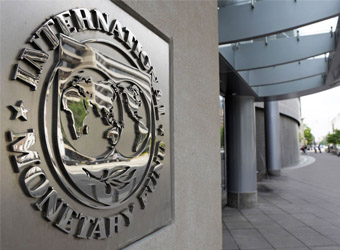A top official in Egypt’s cash-strapped interim government said he doubted the country could reach a deal with the International Monetary Fund this year, signalling resistance to any attempt to rein in spending and close the country’s budget deficit.
Ashraf al-Araby, the interim government’s planning minister, told reporters that Egypt’s military-backed government would close a budget gap of more than 10 per cent of GDP by relying on help from foreign countries rather than remove subsidies and increase taxes in order to qualify for a $4.8bn IMF loan.
“The time is not appropriate to begin a new round of negotiations with the IMF,” he told reporters, according to local media. “Aid from Arab countries will help Egypt get through the transitional period.”
Last week, Saudi Arabia, Kuwait and the United Arab Emirates, which strongly backed Mr Morsi’s removal, pledged $12bn in grants, loans and fuel to Egypt.
Egypt’s interim government is rushing to shore up domestic and international support less than two weeks after the military placed it in charge after ousting the democratically elected government of president Mohamed Morsi in a popularly backed coup. Adli Mansour, interim president, has vowed to draw up a new constitution and hold parliamentary elections by February.
Bill Burns, US deputy secretary of state, arrived in Cairo late on Sunday to become the highest ranking US official yet to visit Egypt after the coup. He aims to soothe friction between Washington and Cairo and to push for a rapid return to democratic rule.
The long time Middle East hand and career diplomat was expected to meet “interim government officials as well as civil society and business leaders,” the state department said. “He will underscore US support for the Egyptian people, an end to all violence and a transition leading to an inclusive, democratically elected civilian government.”
He is also expected to push the new authorities to release Mr Morsi and his Muslim Brotherhood colleagues from detention, avoid any gratuitous retribution against them and quickly hold elections.
The Obama administration also is likely to be worried over a flare-up of violence in Egypt’s Sinai peninsula, which shares a border with US ally Israel and whether the new authorities can bring Egypt the calm it needs to resuscitate its flagging economy.
“Mr Burns is trying to make sure that the new constellation of powers in Egypt can last and can achieve security and stability,” said Mustafa el-Labbad, director of the Sharq Center for Regional and Strategic Studies, an independent Cairo think-tank.
For the past two years, the IMF deal has been seen as crucial to efforts to stabilise the economy. But the IMF and successive Egyptian authorities have struggled to sign a deal which could give other lending agencies and international donors the green light to release funds. Egypt’s foreign currency and gold reserves have dropped from $36bn at the beginning of the 2011 uprising against deposed president Hosni Mubarak to $14.9bn by the end of June.
Mr Araby said “political and social” pressures will not allow for a quick adoption of an IMF deal, and “its associated implementation of policies and procedures”. After a meeting with interim prime minister Hazem el-Beblawi, he said there were certain political dues to be paid before negotiating any further with the IMF, according to local media.
Western officials have been pressing Egypt to finalise an IMF agreement. “Delaying a deal is very unwise,” said a western diplomat. “It’s just thinking short-term. They know the reforms are so unpopular, and Morsi also couldn’t implement them.”
Mr Araby, a US-educated economist who served in the same post for much of Mr Morsi’s tenure, predicted an increase in foreign exchange reserves in the coming weeks and hinted at new aid agreements.
Source: The Financial Times


